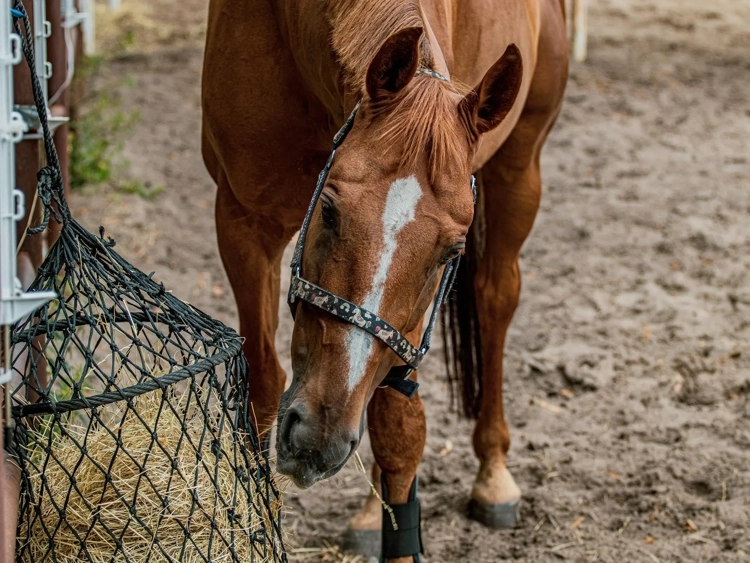Food is the most essential building block to any healthy animal.
When possible, always opt for organic products farmed in a responsible manner. Real, clean, properly farmed food is closer to what nature intended and ideal for your mount.
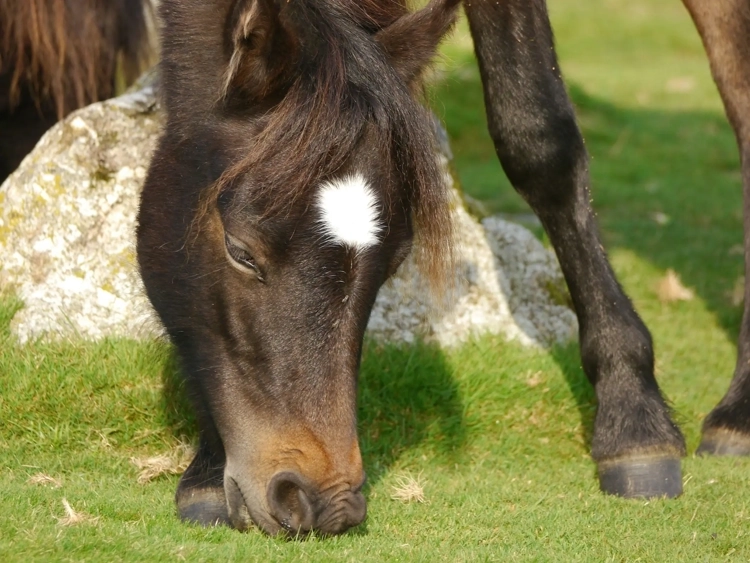
Grass
Horses were made to graze, their digestion works at its optimal level when they consume long-stem fiber on a regular basis. Allowing your horse to graze every day and supplementing their feed with other options is an ideal situation. This is not always possible – so it is important that your animal’s diet mimics the nutritional value and fiber equivalent.
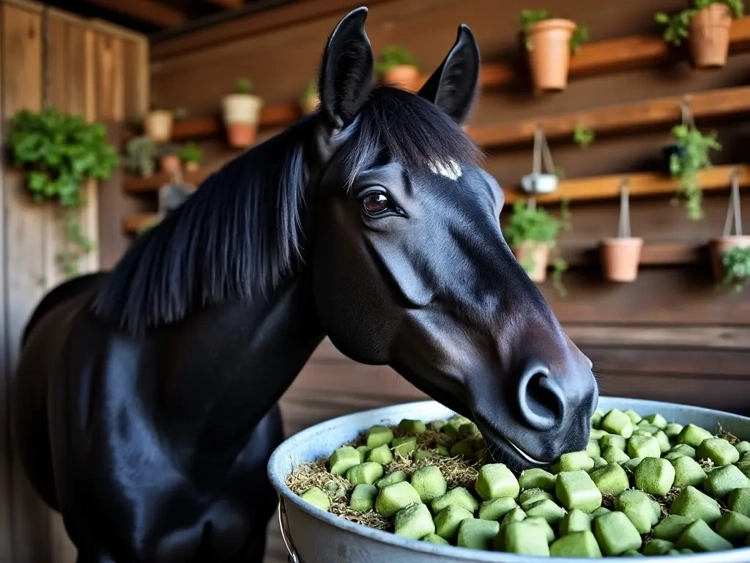
Hay Cubes
Hay cubes are usually made from alfalfa and timothy hays which are condensed into small blocks made to break apart for easy consumption. Cubes are liked because they are generally uniform in nutritional content and allow for more obvious portion control. Plus they are easier to store, create less mess and less wasted feed overall.
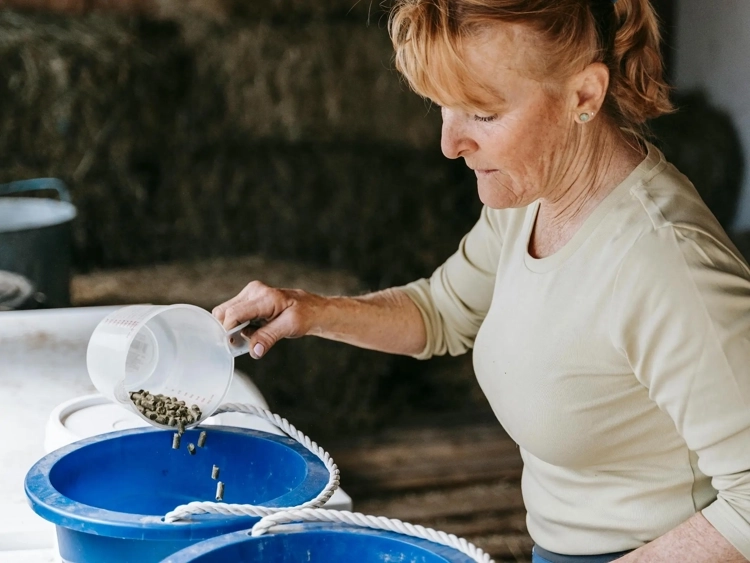
Hay Pellets
Horses require long-stem fiber for proper digestion and because of this pellets are usually fed as a filler to supplement hay feeding. Like cubes, pellets are cleaner and easier to store. However they also present many of the same risks, as well as potential digestive problems. Pellets are a good option for traveling animals and horse shows – they are easier to store and travel with than loose hay.
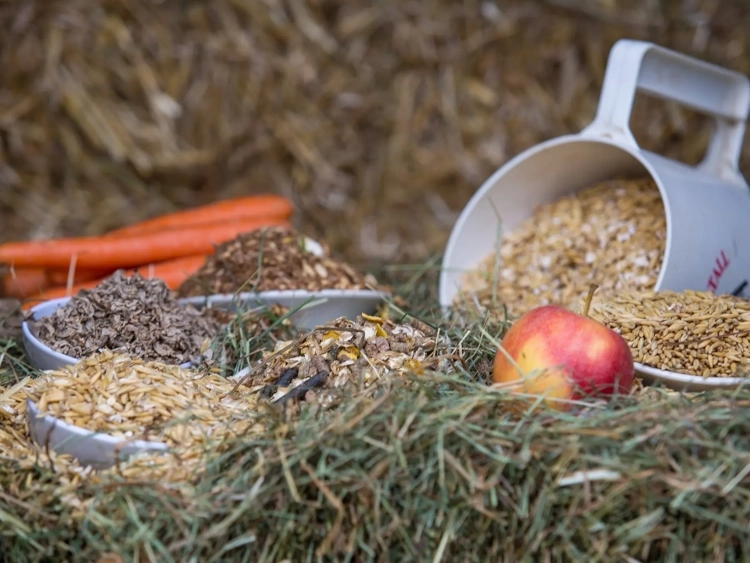
Grain
There are several different types of grains that are commonly fed to horses. Each one has its own specific properties, but they are all a good source of energy. It should be noted that animals fed grain should always be given ample room to exercise. High energy feed gives animals high energy and if they aren’t exercised there is a risk of injury.
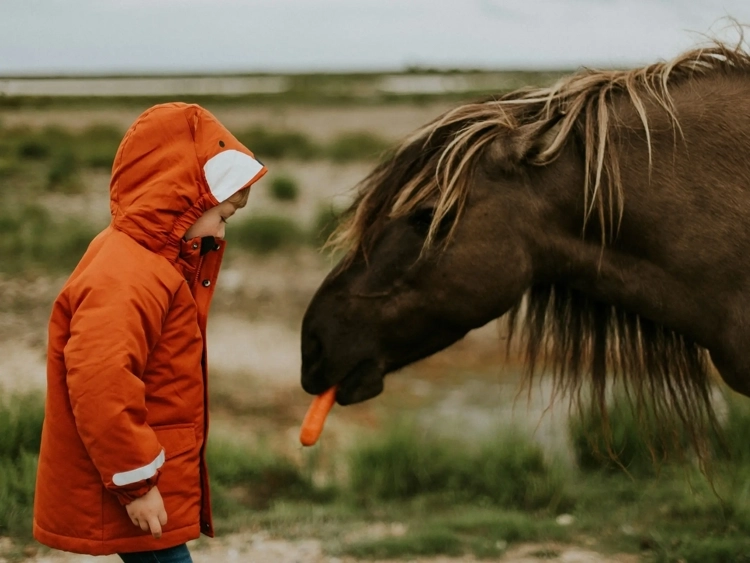
Treats
Almost anyone who owns a horse likes to treat them from time to time & there is a long list of treat types, which means something for everyone. Remember treats are just that – treats. They should not be fed in an attempt to supplement hay & grass feeding, but rather as an less frequent change of taste.
